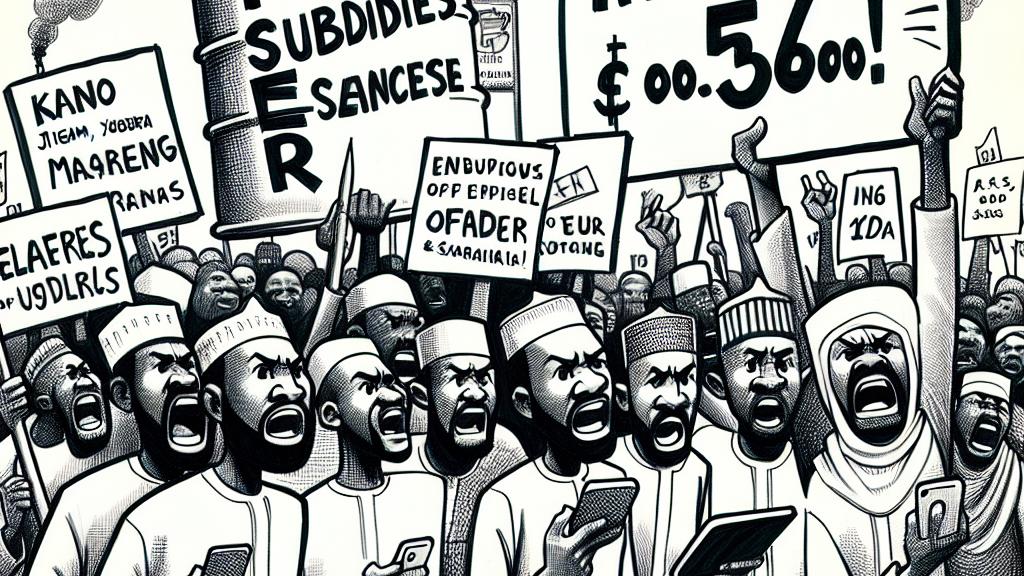Nigerian Protests Go Viral: 24-Hour Curfew Sparks Days of Rage!
Overview
- Massive protests erupt across Nigeria due to soaring living costs.
- 24-hour curfews imposed in northern states to curb violence.
- Citizens demand comprehensive government reforms and accountability.

Protests Erupt Amid Economic Crisis in Nigeria
In Nigeria, widespread protests have erupted in reaction to the escalating cost of living, forcing citizens to voice their frustrations against what they perceive as ineffective governance. The protests have gained substantial momentum, particularly in northern states such as Kano, Jigawa, Yobe, and Katsina, where many citizens are rallying in large numbers. Inspired by successful movements in Kenya, activists have utilized social media to organize demonstrations, making their discontent known across the nation. This unrest is largely fueled by the government's recent policy decisions, including the abrupt removal of fuel subsidies, which has resulted in soaring prices for necessary goods, forcing families into dire economic straits and igniting calls for urgent governmental intervention.
Government's Response: Enforcing Curfews to Maintain Order
As protests intensified, Nigerian authorities imposed strict 24-hour curfews in response to violence and looting incidents tied to the demonstrations. Governments in affected states, including Kano, have claimed the curfews are essential for public safety and preventing further chaos. However, this move has drawn significant criticism, as security forces have responded aggressively to protestors, using tear gas and live ammunition, leading to tragic consequences including fatalities. Human rights groups have raised alarms over these actions, arguing that such curfews infringe upon citizens' rights to peaceful assembly. As the situation escalates, the government faces a delicate balancing act between ensuring public safety and preserving democratic freedoms.
Calls for Systemic Reforms and Accountability
Beyond immediate economic concerns, the protests highlight a broader call for systemic reforms within Nigeria's political and judicial systems. Protesters are advocating for significant changes, including electoral reforms and accountability measures aimed at addressing governance issues that have long plagued the nation. This discontent echoes sentiments from past movements, such as the #EndSARS protests, which targeted police brutality but faced brutal state repression. As protests continue, citizens are growing increasingly vocal about their demands for transparency and justice from their leaders. The ongoing demonstrations represent a pivotal moment in Nigeria's trajectory, with the potential to reshape the country's political landscape and reinvigorate public trust in governance, provided the government engages constructively with the voices of its people.

Loading...